Oregon Rental Agreement

An Oregon rental agreement is a legal contract between a landlord overseeing a rental property and a tenant who wishes to use it. Oregon landlord-tenant law governs these agreements; rental terms must be within the limits allowed by law.
Oregon Rental Agreement Types
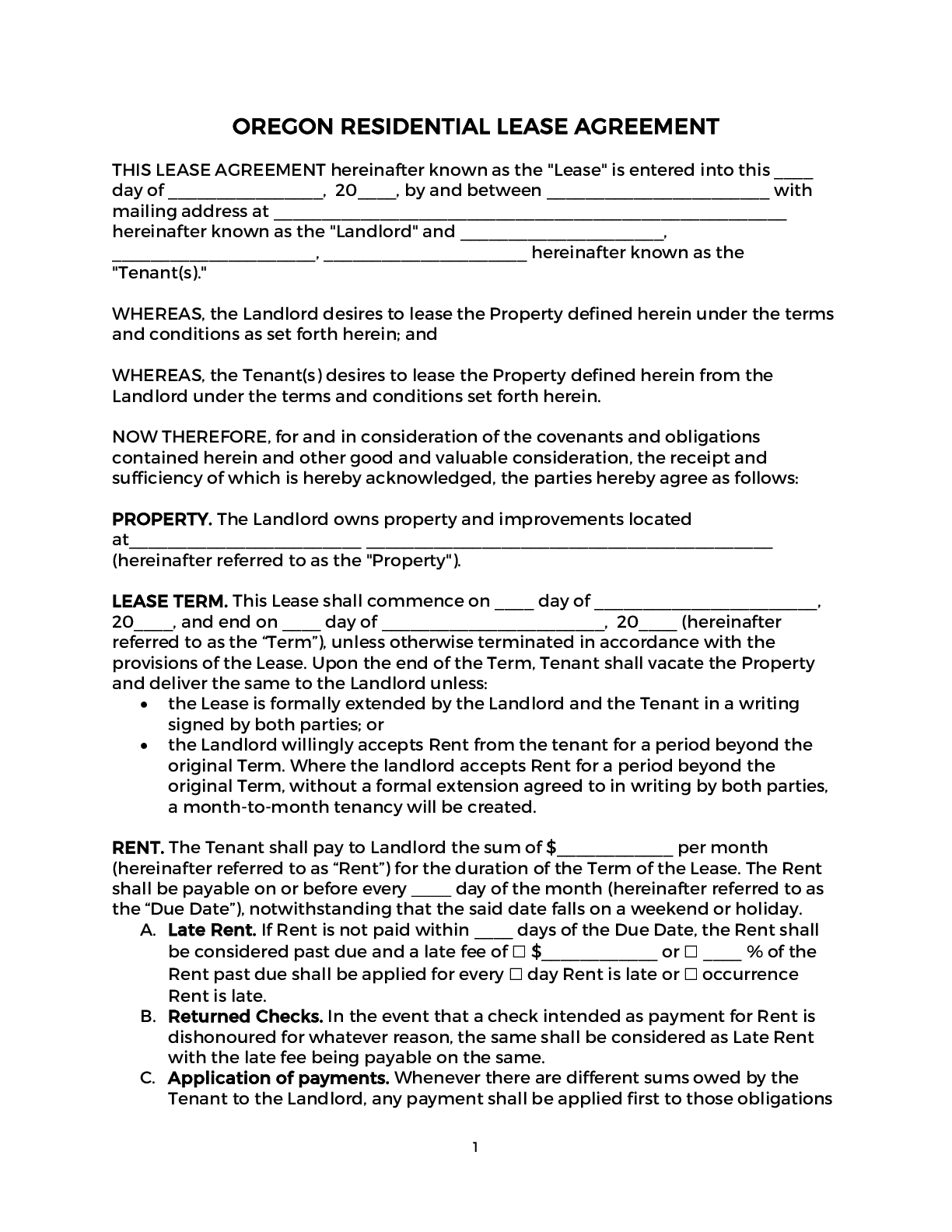
An Oregon residential lease agreement is a legal contract for a tenant to rent a residential property from a landlord.
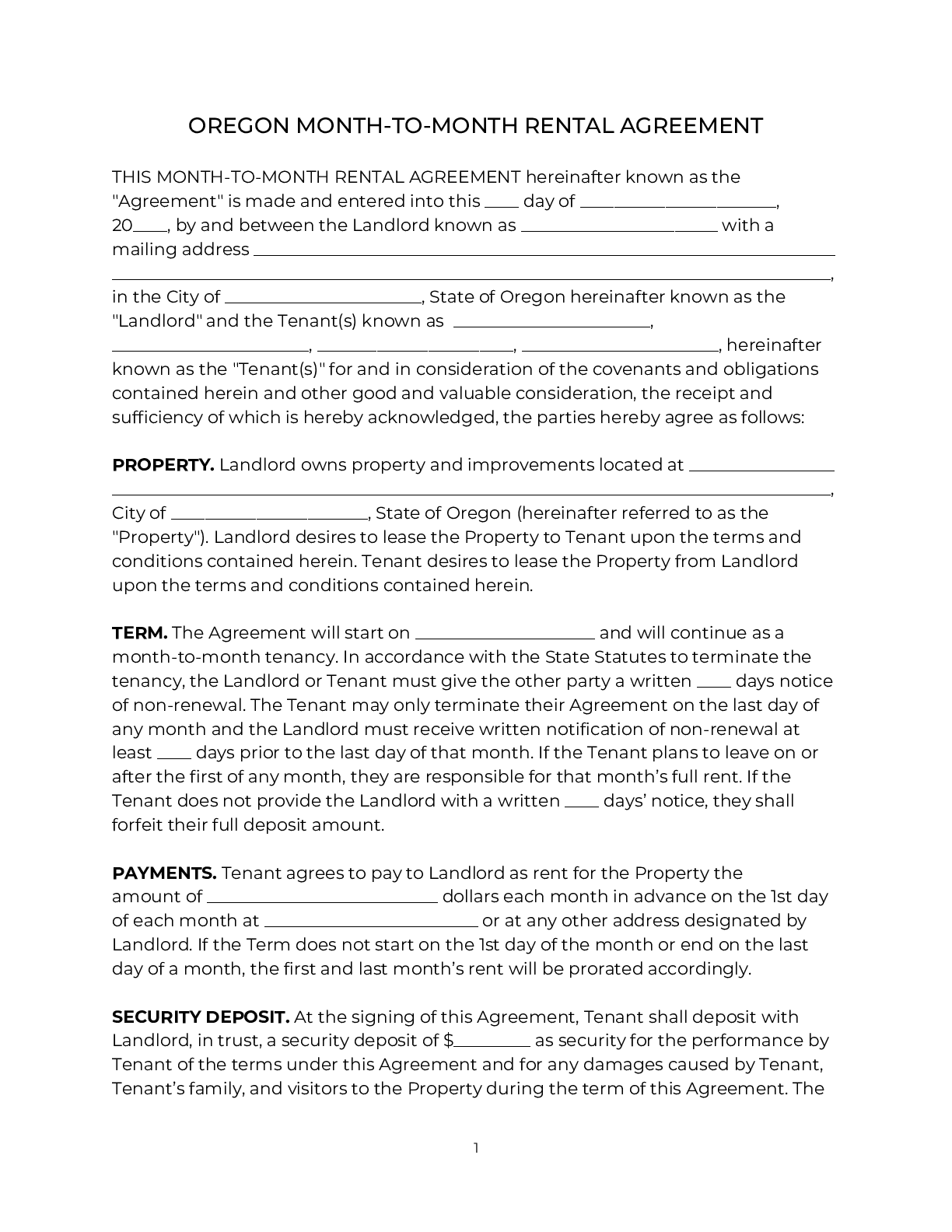
An Oregon month-to-month lease agreement is a contract for a tenant to rent property from a landlord. The full rental term is one month and renews on a month-to-month basis.
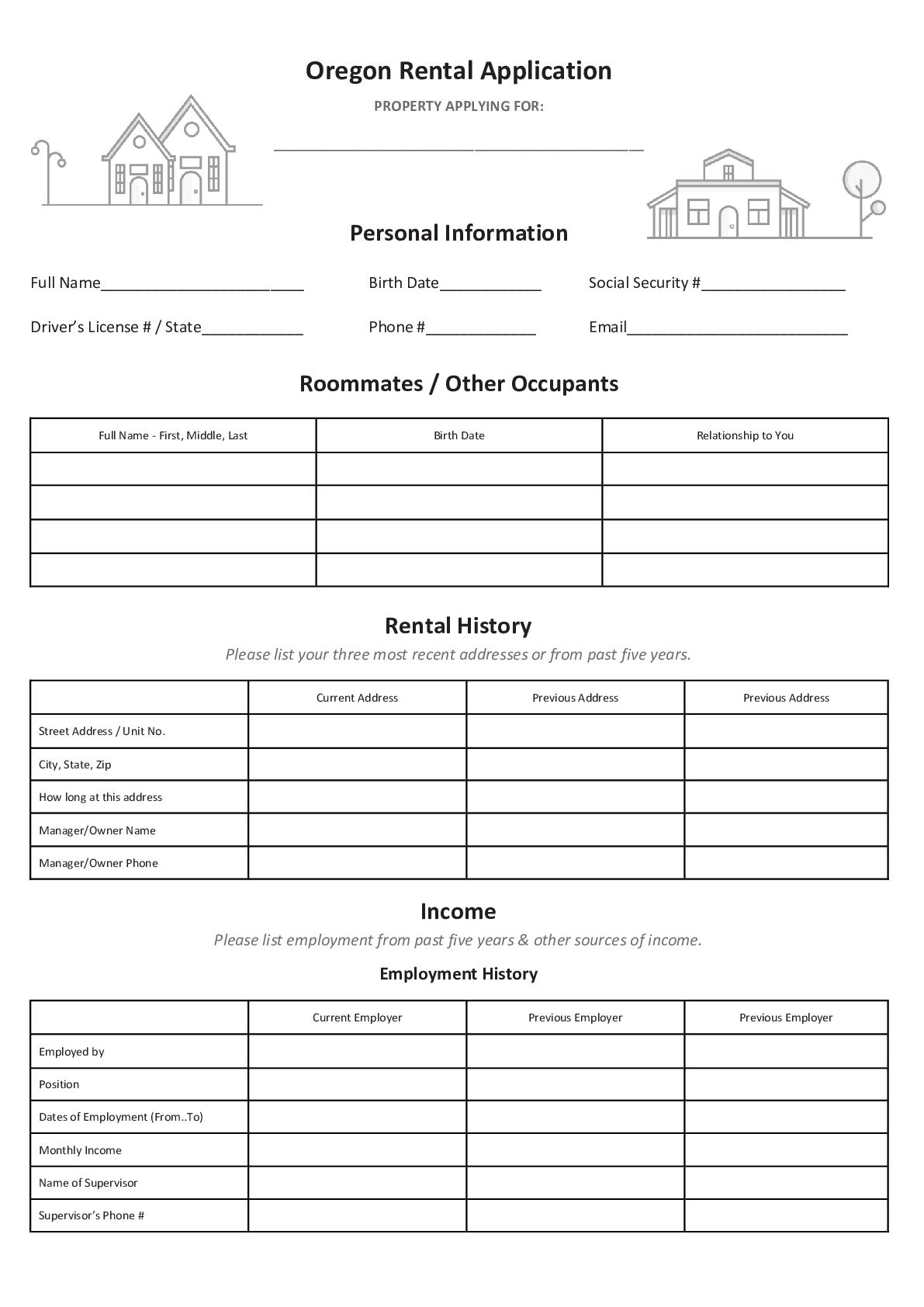
Oregon landlords may use a rental application form to screen prospective tenants. A rental application collects information relating to finances, rental history, and past evictions.
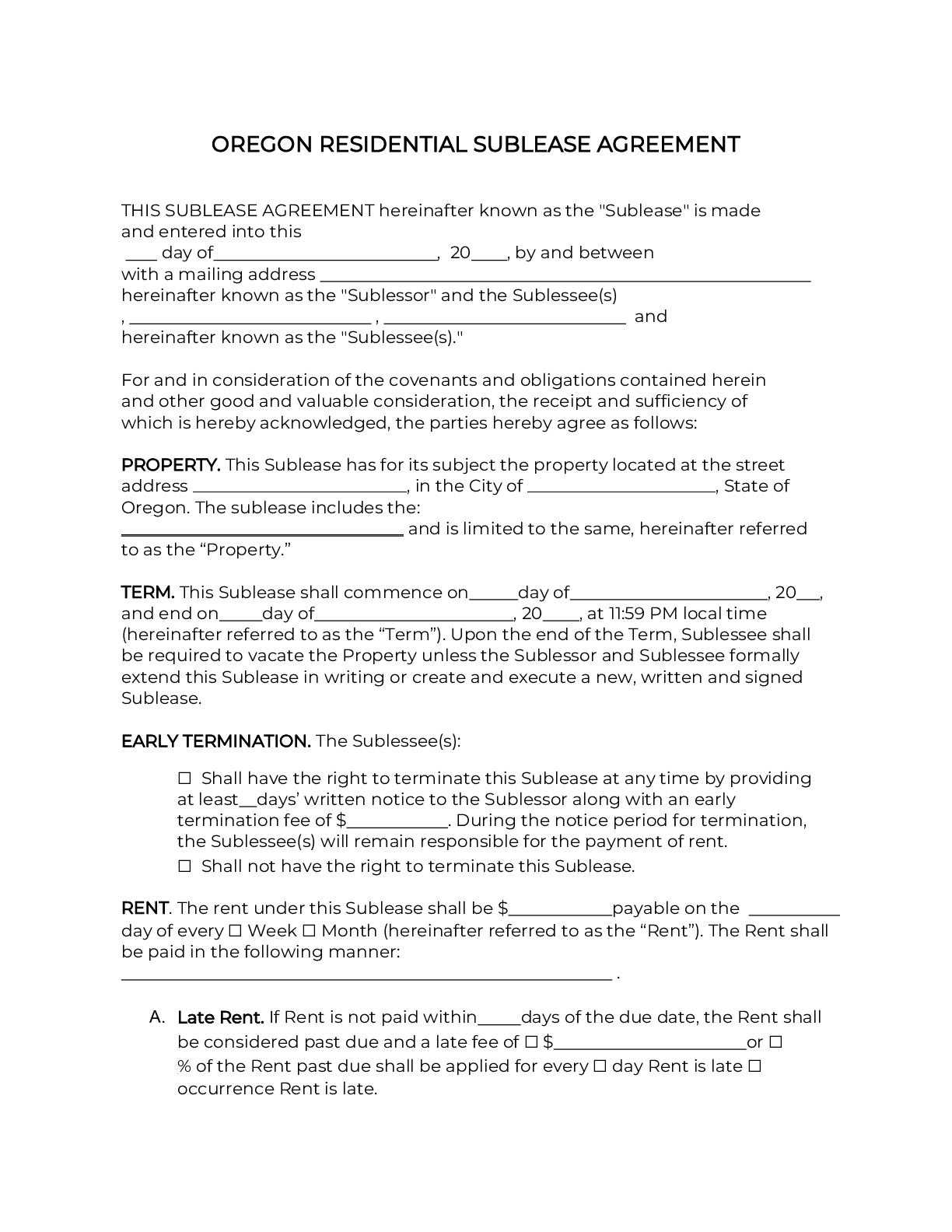
An Oregon sublease agreement is a legal contract where a tenant rents property to a new tenant, usually with the landlord’s permission.
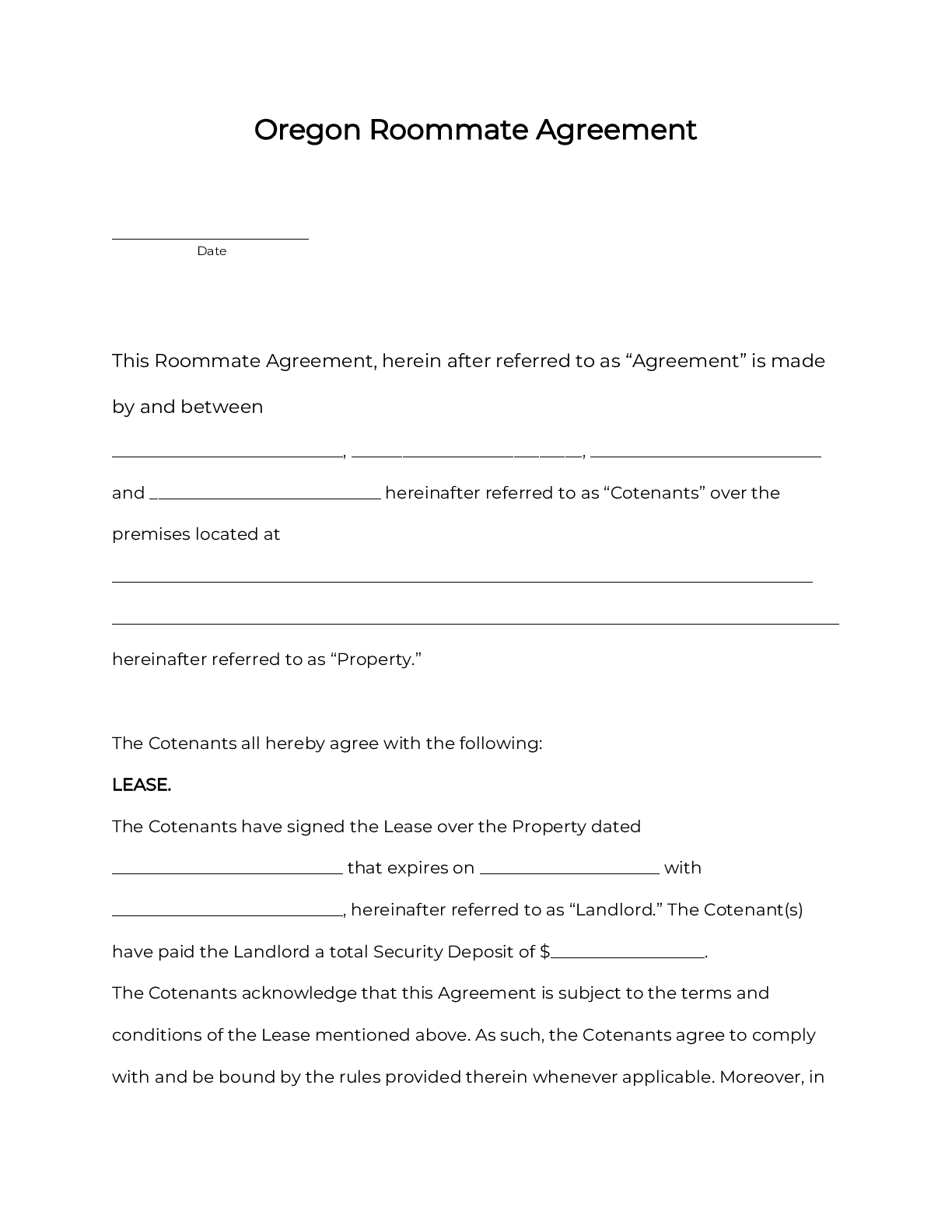
An Oregon roommate agreement is a legal contract between two or more people who share a rental property according to rules they set. This agreement doesn’t include the landlord.
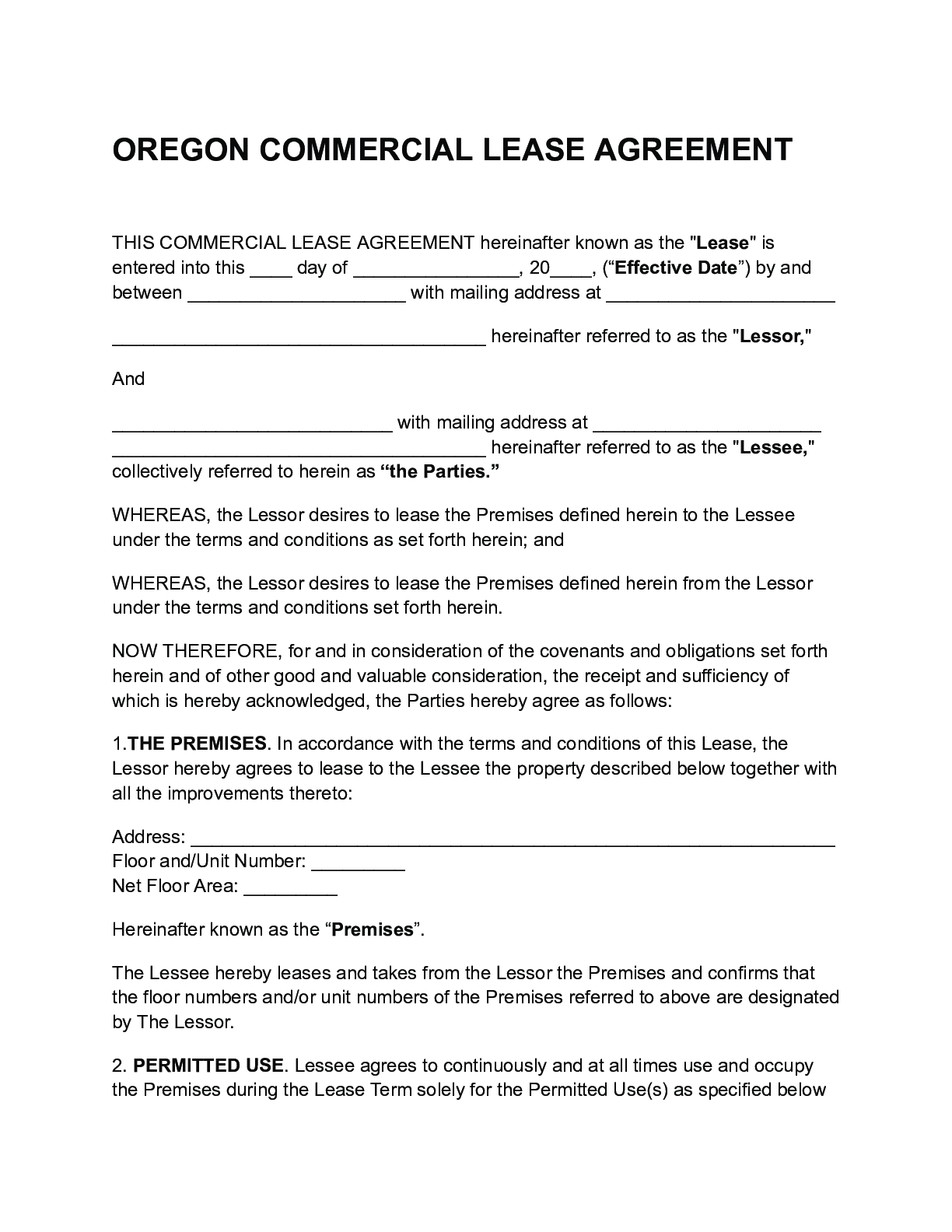
An Oregon commercial lease agreement is a legal contract arranging the rental of commercial space between a landlord and a business.
Common Residential Rental Agreements in Oregon
- Oregon Rental Housing Alliance Rental Agreement– Members of the Rental Housing Alliance in Oregon use this agreement. It provides an extensive list of rules and procedures, including specifics for noncompliance fees and prohibited items.
Oregon Required Residential Lease Disclosures
- Landlord’s Name and Address– Oregon landlords executing a lease must provide contact information for themselves or their authorized agent. This enables smooth communication of any important legal notice.
- Carbon Monoxide (CO) Alarm Disclosure– Landlords can’t rent out a property with a source of CO emissions unless there’s a proper alarm system installed. The landlord must provide the tenant with an alarm in the rental unit. The Landlord must include written instructions for testing the alarm, a battery replacement (if applicable), and a disclosure that alarm maintenance is the tenant’s responsibility.
- Flood Plain Disclosure – Landlords must disclose if the property is located in a flood plain.
- Pending Suits Disclosure – Oregon landlords with four or fewer rental units must inform a tenant signing a rental agreement about any pending lawsuits or other outstanding legal notices relevant to the property.
- Common Utility Disclosure – Oregon landlords must disclose any shared utility meters applicable to the rental property. The disclosure should specify which utilities are shared, who they’re shared with, and how the landlord splits the bill.
- Smoking Policy Disclosure – Oregon landlords must disclose any smoking policies enforced on the rental property. This includes noting any smoke-free areas and designated smoking zones in and around the property.
- Recycling Notice – Landlords of multifamily properties (more than 5 units) in Oregon located in a city or “urban growth boundary” must provide recycling services.
- Dishonored Check Fee – Oregon leases must disclose any dishonored check fees. A dishonored check means that there was a lack of funds or credit to pay the check. Dishonored check fees are limited to $35 in Oregon, and must be demanded from the tenant in writing.
- Lead-Based Paint Disclosure – For any property built before 1978, federal law requires that an Oregon residential lease must contain a lead-based paint disclosure with an EPA informational pamphlet, plus notice of any lead hazards on the property.
To learn more about required disclosures in Oregon, click here.
Some Oregon cities, like Portland, may require additional disclosures. Local laws apply in addition to state laws.
Oregon Landlord Tenant Laws
- Warranty of Habitability – Oregon landlords can must provide features required for basic health and safety, like heating, hot water, and electricity. Landlords must repair these features within 30 days of proper notice from the tenant (seven days, for essential services). Failure to repair allows a tenant to end the lease, sue the landlord, or repair and deduct. Rent withholding is only allowed for property that’s uninhabitable due to lacking an essential service.
- Evictions – Oregon landlords may evict for rent default, lease violations, or illegal acts, among other things. Before filing for eviction, landlords must serve tenants with prior notice to pay or quit, depending on the eviction type. This means most evictions in Oregon take between a couple of weeks to a couple of months.
- Security Deposits – Oregon doesn’t place a cap on the amount a landlord can charge for a security deposit or pet fee, as long as it’s defined in the lease. A landlord has 31 days after lease termination to return any unused portion of a security deposit.
- Lease Termination – Oregon tenants can terminate a month-to-month lease with 30 days of advance notice, if the tenant has resided on the property less than a year. Longer month-to-month tenancies require 60 days of notice. A fixed-term lease can’t be terminated early without active military duty, landlord harassment, uninhabitable property, or domestic abuse.
- Rent Increases and Fees– Oregon caps annual rent increases to a specific percentage plus the consumer price index (CPI). It also bans rent increases within the first year of tenancy except for week-to-week tenants. Increases must be announced by advance notice (7 days for week-to-week tenancies, 90 days for tenants of one year or more). Oregon also caps per-day late fees to 6% of the monthly rent, and caps bounced check fees at $35 plus bank costs.
- Landlord Entry – Oregon landlords can enter rental property for purposes reasonably related to the tenancy, like repairs and inspections. They must provide at least 24 hours of advance notice before entry, unless there’s an emergency.
- Settling Legal Disputes – Oregon’s counties each operate their own small claims courts for landlord-tenant disputes. Most of them accept cases where the amount in controversy is under about $10,000. Some of these courts have the power to resolve evictions, but many do not.
To learn more about landlord tenant laws in Oregon, click here.








